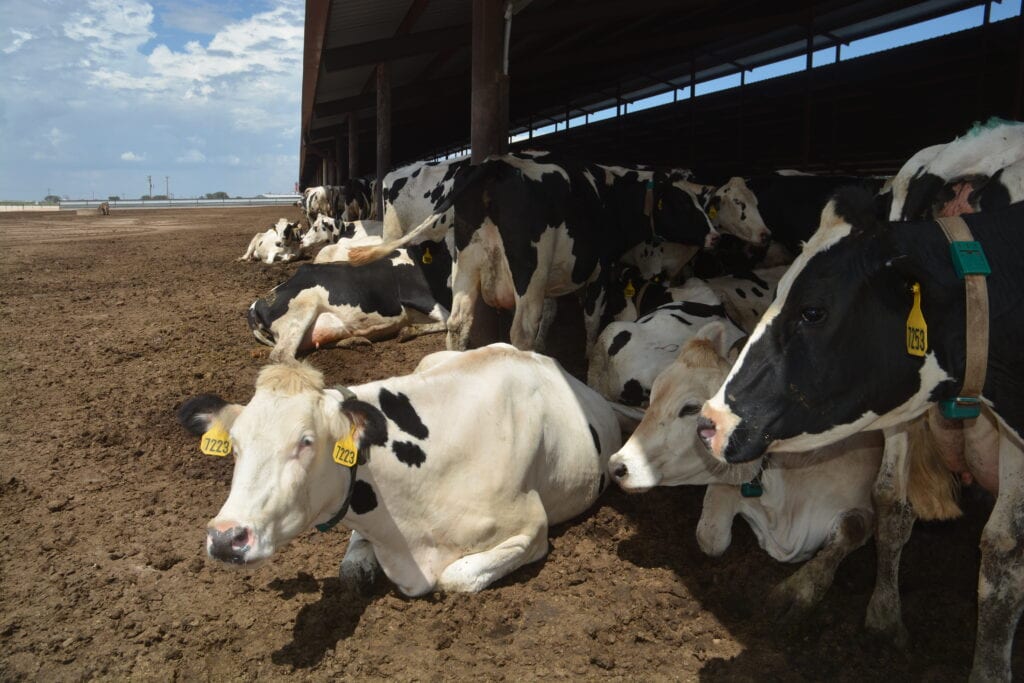
Return to February 2023 Dairy Dispatch
Right to Farm – Improving statutory protections for Texas agriculture
By Kyle K. Weldon and Jim D. Bradbury
James D. Bradbury, PLLC
Considering that less than 1% of the U.S. population is involved in raising and growing our nation’s food and fiber, there is a significant disconnect between what is purchased at the grocery store and the sights and odors coming from the day-to-day operations of the farm or ranch that fills those shelves. As urban sprawl occurs and urban populations grow into more rural settings, the likelihood of conflict between a new neighbor and an animal feeding or other ag operation is increasing each year.
To protect farming and ranching operations, all 50 states have enacted “Right to Farm” statutes, which provide important protections for existing agricultural operations against nuisance lawsuits that may be filed by new neighbors, who, for example, might complain about the noise or smell coming from a nearby ag operation. The Texas Supreme Court has described a legally actionable nuisance claim to be “a condition that substantially interferes with the use and enjoyment of land by causing unreasonable discomfort or annoyance to a person of ordinary sensibilities.” Barnes v. Mathis, 353 S.W.3d 760, 763 (Tex. 2011). Looking at the Texas Right to Farm statute, it provides that no nuisance claim may be brought against an agricultural operation that has been in operation for one year or more prior to the date of the lawsuit, so long as the conditions complained of have not changed since the established date of operation. Importantly, right to farm statutes provide protections against nuisance claims, but not other torts such as trespass or negligence or other violations of federal or state law.
Right to Farm statutes recently came into the spotlight around 2015 when multiple high-profile nuisance lawsuits were filed against several Smithfield Foods hog operations located in North Carolina. In those lawsuits, neighboring plaintiffs alleged that the hog farms’ management of waste from the operations degraded their quality of life and reduced their property values. There, the courts held that the North Carolina Right to Farm defense did not apply, and the juries in those suits awarded the plaintiffs over $500 million in damages.
Concerned with the results of the North Carolina litigation, since 2018, over a dozen states (including North Carolina) have made updates to their Right to Farm laws, attempting to strengthen the protections that these statutes provide. Some of these updates include (1) the awarding of mandatory attorney’s fees for the ag operation if the suit is brought in bad faith or is groundless, (2) requiring that the plaintiff who files the nuisance suit to be the majority legal landowner of the property that is allegedly affected, and that property be within a half mile of the agricultural operation; and (3) limiting the type of and amount of damages.
Texas has yet to amend its Right to Farm Act in response to the risks presented by the North Carolina lawsuits; however, proposed amendments will likely be coming. For example, in the 2023 legislative session there has already been one bill filed by Rep. DeWayne Burns that seeks to clarify and protect agricultural operations located within municipalities (see HB 1750). Stay tuned, we will keep you advised of further legislation in this area as the session progresses.
Return to February 2023 Dairy Dispatch


